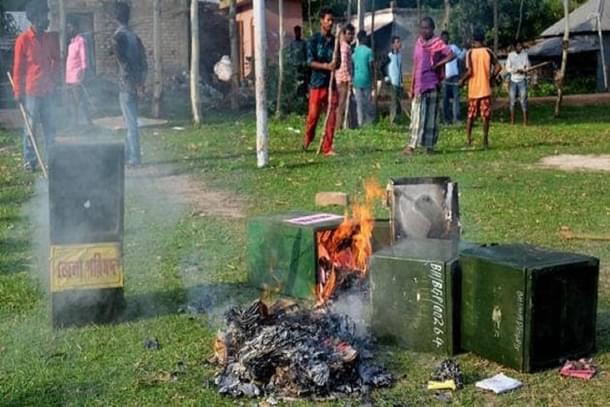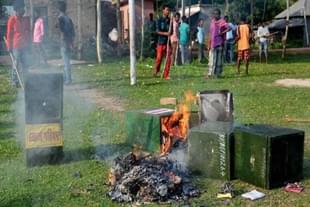Politics
Can’t Fix Bengal Without Fixing Political Violence, But That’s Not Going To Happen Soon
Swarajya Staff
Aug 16, 2024, 04:41 PM | Updated Aug 23, 2024, 03:59 PM IST
Save & read from anywhere!
Bookmark stories for easy access on any device or the Swarajya app.


There was a murder. Suspicions are strong that it was a gangrape. There is outrage. There are marches in Kolkata and outside it. There are marches in Bengal and outside it. And yet, the blunt truth is—nothing will change in the state.
Nothing will change in the state because Bengal refuses to come out of the grip of political violence.
In the West Bengal of today, political domination is expressed through violence. Violence is taken as an organic part of politics. In other states, the party in power shows its superiority by dispensing favours to its cadres, or giving undue preference to its supporters. That is taken as the ‘normal’. In West Bengal, violence on cadres/supporters of other parties is the ‘normal’.
It happened under the Congress in the 1970s. Then under the Communists for more than three decades. And now it is happening under the Trinamool.
Given that the roots of violence have taken hold deep inside the social-political ground of Bengal, two truths need to be accepted in the search for a solution:
1. Trimming the branches won’t do. This culture of violence needs to be uprooted as a whole.
2. The force required to carry out this uprooting is likely available only with the Centre. (Bengali society at the moment appears too feeble to even imagine such a feat).
A clean-up of Bengal’s politics and political culture seems impossible without President’s rule being imposed and large-scale arrests and detentions, starting from ‘syndicate heads’ to street thugs.
But there is a rub here as well.
1. The fact remains that the Trinamool is in its third term in power and in the last round of elections it secured 213 seats out of 294. That is 72 per cent of all seats in the Assembly.
2. On 4 June, 2024, Narendra Modi lost considerable political capital when the Bharatiya Janata Party fell short of securing a parliamentary majority on its own. In 2024, imposing President’s rule in a state requires expenditure of political capital. Does Modi have that much of it in the bank?
On the other hand, as this Swarajya piece argues, the gravity of the incident, the apparent ineptitude of the state law enforcement agencies, and public sentiment around the Kolkata case makes President’s rule in Bengal a constitutional duty rather than an executive instrument awaiting usage.
Violence should be the monopoly of the state. In Bengal though, it appears like the state has collapsed and only violence remains with its monopoly.





